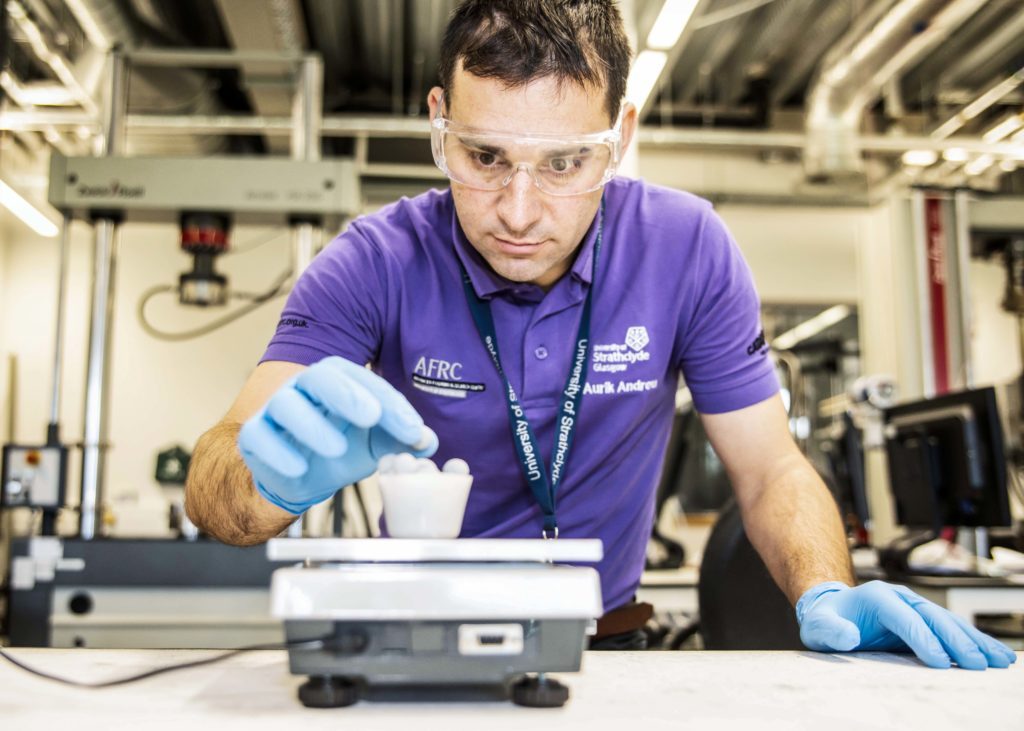
NEW research has been tipped to help divert up to 100,000 tonnes of waste ash from landfill every year.
Heat treatment specialists at the University of Strathclyde’s Advanced Forming Research Centre (AFRC) were involved in a project, commissioned by Enva, formerly William Tracey Group and funded by Construction Scotland Innovation Centre (CSIC), which saw heat treatment methods used to diminish contaminants from ash to produce concrete pellets for the construction industry.
Enva, a recycling and rescue management company, collects ash from waste and biomass plants. The firm wanted to explore the possibility of turning this into a construction product with commercial and quality benefits.
AFRC experts carried out various furnace trials to determine the most suitable time and temperature required to produce a reliable concrete product made from waste ash, cement and water. The mix was then made into small pellets. A non-contact infrared thermometer monitored temperature uniformity across the batch of pellets throughout the heat treatment process and provided information on the optimum temperature required.
The trials reportedly confirmed that the pellets were potentially environmentally friendly and highlighted that the refined quality of the ash component increased the strength of the product.
Scott Newport, technical manager at Enva explained, “The research carried out by the AFRC helped us understand more about the behaviour and performance of the ash, allowing us to take our first steps in exploring how we can best utilise this product, which was previously scrapped as waste. It’s an exciting time within the industry to create circular initiatives that will open up various opportunities from revenue and job creation, and we’re thrilled that we’re closer to achieving this.”
Dr Aurik Andreu, senior manufacturing engineer at the AFRC added, “Enva is focused on diverting waste streams from landfill by creating an alternative aggregate product that will provide cost and quality benefits for industry. The heat treatment process allowed us to develop an in-depth understanding of how components within the ash operate to determine the optimum way of maximising these benefits and help Enva further research into a new product for industry.”
Jennifer Smart, business relationship manager at the CSIC commented, “As a result of CSIC funding and the expertise within the AFRC, this successful project has allowed Enva to take a significant step towards commercialising a new product for the construction industry. This could have a significant impact on the supply chain, creating new jobs and new markets and lead to further expansion of the business operation throughout the UK and Ireland and potentially further into mainland Europe.”








